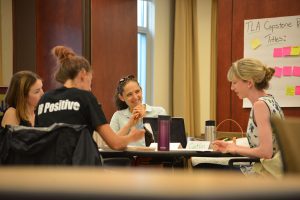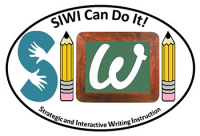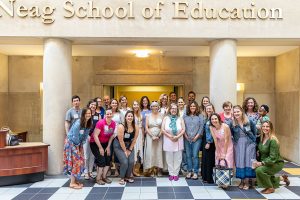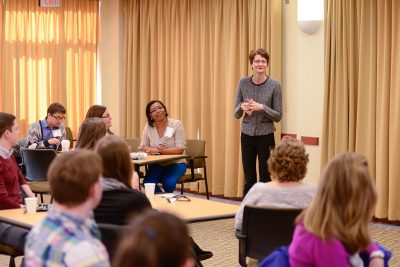Teacher-Developed Evidence Team
The TDE Team is a community of like-minded educators who collaborate to generate evidence, and refine our understandings of strategy instruction in use.
The goal of this supportive community is to quickly test ideas, identify patterns and successes, and then to share what we have learned with one another.
We generate research for teachers, by teachers in real time: no paywalls, no publishers, no delays!
Strategic and Interactive Writing Instruction (SIWI)
Strategic and Interactive Writing Instruction (SIWI) comprises three main principles:

(1) strategic instruction rooted in cognitive theories of composing
(2) interactive instruction based on sociocultural theories of teaching and learning, and
(3) metalinguistic knowledge and linguistic competence drawn from language acquisition theory.
Disciplinary Literacy
Developing and supporting literacies within and across academic disciplines
What is disciplinary literacy?
Related courses: EDCI4010, 4125, 5080, 5140
Neurodiversity
The INCLUDE project envisions a radically inclusive Civil and Environmental Engineering Department that:
- uses a strength-based approach to personalize the learning experience and improve learning outcomes for all students
- creates community within the university to foster inclusive academic practices
- supports our students' diverse learning and thinking styles
- cultivates the potential of neurodiverse students to contribute to engineering breakthroughs
- contributes to the development of a more diverse engineering workforce
Teaching and Teacher Education

Dorothea Anagnostopoulos, associate professor in the Neag School of Education and vice president of Division K of the American Educational Research Association (AERA), is leading the division’s ongoing efforts to conduct research that:
- supports expansive visions of teaching and teacher education
- addresses questions about what constitutes good teaching in all its dimensions, how teachers can be prepared to enact it, and how teachers’ work can be organized so that all students have equitable access to it
- identifies the learning-to-teach opportunities in teacher education, K-12 schools, and community settings that enable teachers to enact ethically responsible, culturally sustaining and effective teaching practices in and across diverse school contexts
- provides insight into how we can support teachers of color not only to enter and remain in teaching but to transform the profession so that it better serves our students and their communities
- asks new questions and uses new methods to build our understanding of the challenges and opportunities for teaching and teacher education posed by new technologies, shifting policy terrains, and emerging social movements